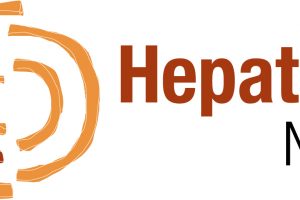Greenfield Housing Code to ensure that new residential suburbs were leafier and more environmentally friendly
A proposed new Greenfield Housing Code will increase housing supply by making it easier and greener to build in new development areas.
Minister for Housing and Planning, Anthony Roberts, said the NSW Government was committed to reducing red tape, speeding up the delivery of new homes in greenfield areas – new release areas – to meet the needs of the state’s growing population, and improving housing affordability.
“Through the proposed Greenfield Code, homes in new release areas could be approved under complying development in 20 days compared to 71 days on average for a development application,” Mr Roberts said.
“The proposed complying development standards such as building height, setbacks and landscaping have been tailored to suit housing types and lot sizes in new release areas. This will ensure new homes are designed to protect the privacy and amenity of neighbourhoods.
“This type of streamlined approval not only speeds up the delivery of new housing, but makes it easier and cheaper for people to build homes to suit their lifestyles and incomes.”
Mr Roberts said the Greenfield Housing Code would also ensure that new residential suburbs were leafier and more environmentally friendly and that the Government would provide, free of charge a tree to the owners of new homes approved under complying development in Western Sydney greenfield areas – up to 5,000 trees per year for three years.
“This initiative to increase the number of trees in greenfield areas will minimise urban heat in Western Sydney and improve the environment for pedestrians at street level.
“Tree canopy coverage also contributes to an improvement in biodiversity habitats for species as well as oxygen production, with very clear benefits in relation to visual amenity, landscape and sense of place for residents.
“Complying development will allow for faster approvals for new homes and home renovations. It reduces red tape, costs and delays for homeowners, with savings of up to $15,000 for new homes.
“Sydney will need an extra 725,000 new homes over the next 20 years to keep pace with demand and many homes will be built in new land release areas or greenfield sites.
“This helps to grow the economy by providing a boost to the housing industry and the wider NSW economy, and contributes to greater housing supply and affordability.”
Renowned horticulturist Graham Ross said he was excited by and fully supported the Government’s ‘free tree’ initiative.
“This 21st century initiative for NSW is a brilliant move to create green corridors with relevant native tree species across Western Sydney producing cleaner air, habitats for fauna and bees and cooling new suburbs wherever the policy is implemented,” Mr Ross said.
“The gardening and horticultural community support a positive new tree policy for New South Wales and its new suburbs. This announcement by Minister Roberts ticks the boxes to improve urban greenery with corridors of trees across the urban landscape, a giant breathing, living dynamic network of trees.
“The Australian Garden Council fully supports Aussie garden centres, which launched the Garden Releaf campaign in 2015 with great support from the community to improve and beautify our suburbs. This statement by Minister Roberts takes a worthwhile program up to the next level. More trees will complement new homes, produce cleaner air, increases shade in summer, raising the quality of life for citizens while improving property values overtime. This is the best news I’ve heard in decades.”
Housing Industry Association’s Executive Director David Bare, said: “We support the proposed code. Delivering more streamlined approval processes, greater certainty and reduced cost would be a positive for housing affordability and supply,” Mr Bare said.
The Department of Planning and Environment is seeking public and industry feedback on the proposal. For further information or to make a submission here. Submissions can be made until 16 June 2017.




